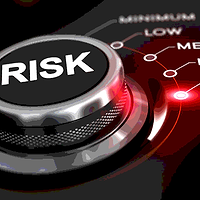Investing in Food Safety Capacity Building Is a Sound Business Decision

When the Global Food Safety Partnership (GFSP) was created in 2012, it was the result of a compelling realization that no single government agency, private sector entity or consumer association alone could effectively ensure food safety in an increasingly globalized food supply chain. Despite the myriad resources and initiatives that exist, we continue to see a lack of well-coordinated approaches to building food safety capacity, optimizing resources and scaling up innovative and locally driven solutions in developing and middle-income countries.
This is why the GFSP—a public-private partnership focused on harnessing investments, skills and knowledge for greater impact in food safety—is now more relevant than ever. Weak capacity to apply international standards constrains public health and economic development, lowers confidence in the food supply, adds cost to governments and food operators alike and contributes to loss of access to global food markets. Three years into this journey, the GFSP is at a critical juncture in its fundraising efforts for implementing capacity-building projects and knowledge management activities.
Bringing a diverse range of partners to the table is not easy and takes time. Like in other partnerships, diverse organizational cultures and modes of operations must find common ground. Even though there is consensus that food safety is a critical driver of productivity and development, how this is leveraged at the global level is a matter of opinion. But one thing is for sure: the higher the capacity to produce and handle safe food products, the better off everyone will be. This is not just a public health truth but a smart business decision as well.
I recently got a glimpse of this forward-looking strategy from Mark FeDuke, director of operations at VLM Foods Inc., a midsized, privately owned, Canadian food trading company. I was favorably impressed by their matter-of-fact business philosophy, which prioritizes long-term investments in food safety capacity building over short-term profits. In his words, “VLM sees food safety not just as a way to mitigate risk, which is obviously critical to being a responsible company, but also as a business catalyst to propel us forward.”
He explained that upgrading a supplier’s equipment in China or providing pro bono food safety and quality control advisory services in Latin America will ultimately result in a win-win situation for all companies involved, because of improved relationships, additional product oversight at the source and tangible benefits to customers in the importing market. Even if the investments benefit their competitors, a company’s own returns are measured in terms of higher credibility, which often results in a greater market share and sustained profits.
This same philosophy is what prompted VLM to invest in and partner with La Paz Fruits—a leading frozen fruit export company in Costa Rica that also became the first certified carbon-neutral company in its sector.
This is far from an isolated example. Our GFSP founding donors Waters Corporation and Mars Inc. have proven to be industry leaders through their early engagement with the food safety capacity-building mission of the Partnership. “Waters Corporation is proud to be seen as a leader in the field of food safety. We’ve fully embraced the GFSP as the only partnership in the world that has the ability to bring all public, private and academic organizations to the table to work together to address the highest priority food safety capacity-building needs globally. Most recently, as part of the GFSP, we’ve worked closely with a range of partners, including the International Food Safety Training Laboratory at JIFSAN, University of Maryland, to lead an inspiring training program that will improve food safety laboratory testing in China,” notes Paul Young, senior director of Waters’ food & environment business operations.
Mars Inc. continues to invest in initiatives to help ensure safe food operations and will soon open a Global Food Safety Center in Beijing to promote knowledge sharing, groundbreaking scientific development and multilateral collaboration. According to Bob Baker, Mars’ global head of technical food safety development, “Enhancing food safety should be precompetitive. It is a global challenge that requires collaboration among the food industry, regulators and academics. We hope the Mars Global Food Safety Center can be another platform to bring people together to focus on current and future threats to the world’s food supply.”
A number of other companies have joined the GFSP as in-kind partners—Nestlé, Unilever, Cargill and General Mills to name just a few—because they see the partnership as a way to benefit the whole food sector by supporting specific pilot projects and offering in-kind contributions. But many more companies could join this global effort alongside public sector institutions, international organizations, universities and civil society groups. The broader the representation, the stronger the business case.
Amy Evans is head of the Global Food Safety Partnership Secretariat.
Looking for a reprint of this article?
From high-res PDFs to custom plaques, order your copy today!





